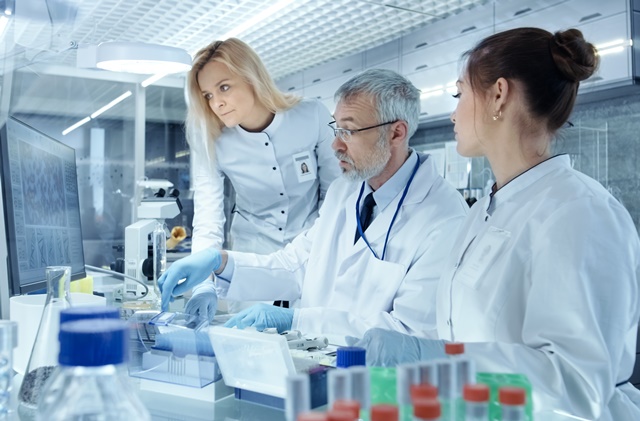A new Researcher-in-Residence partnership between the Cell and Gene Therapy Catapult (CGT Catapult), an independent innovation and technology organisation specialising in the advancement of the cell and gene therapy industry, and Associate Professor Stephen Goldrick from University College London (UCL), will develop a digital twin and build advanced process models of a key step in the CAR-T manufacturing process.
Dr Goldrick, an expert in digital bioprocess engineering, will work with the CGT Catapult to develop a digital twin of the cell expansion phase during CAR-T manufacturing. He will also leverage available Process Analytical Technology (PAT) sensors to enhance understanding of this complex manufacturing process. In this part of the manufacturing process, T-cells previously taken from the patient are stimulated to proliferate and expand. This crucial step in the process is challenging due to the sensitivity and variability of the cells.
The digital twin will be used to identify optimal conditions for the cell expansion phase to derive a strategy to achieve and control these conditions, for example the levels of specific nutrients or the sequence and duration of specific steps. As the strategy is developed, the digital twin will be updated with the latest information, allowing for dynamic feedback between the digital twin and the strategy, and providing further refinement to the manufacturing conditions.
The digital twin will be created using data from advanced real-time analytics of cell expansion. This data was collected during the CGT Catapult’s PAT consortium which brought together 24 organisations to improve understanding of cell bioprocesses.
Matthew Durdy, Chief Executive of the CGT Catapult, said: “CAR-T products have changed the lives of many patients around the world and demonstrated the potential of cell therapies. There remain challenges in CAR-T manufacturing which need to be overcome to ensure that sufficient volumes of these therapies can be produced for the patients who need them. By working with Dr Goldrick, an expert in digital bioprocess engineering, we hope to generate valuable data that could be used to more effectively manufacture high-quality CAR-T products.”
Dr Stephen Goldrick, Department of Biochemical Engineering at UCL said: “I am excited to be working on this project, with the Cell and Gene Therapy Catapult, that aims to build a digital twin of a CAR-T process. This initiative aims to help us better understand this highly complex cellular system, focusing on how nutrient concentrations and environmental conditions affect cell growth and consumption rates. The research will leverage advanced Process Analytical Technology (PAT) tools that will provide valuable insights that could significantly improve CAR-T manufacturing efficiency.
“This project unites the expertise of the CGT Catapult, with its rich knowledge and data resources in CAR-T therapy, and our capabilities at UCL in digital twins and advanced data analytics. Our goal is to provide actionable insights that will not only improve the manufacturability of these therapies but also reduce costs, ensuring broader access to these life-saving treatments throughout the UK.”
This partnership has been established with support from the Innovation Launchpad Network+.


